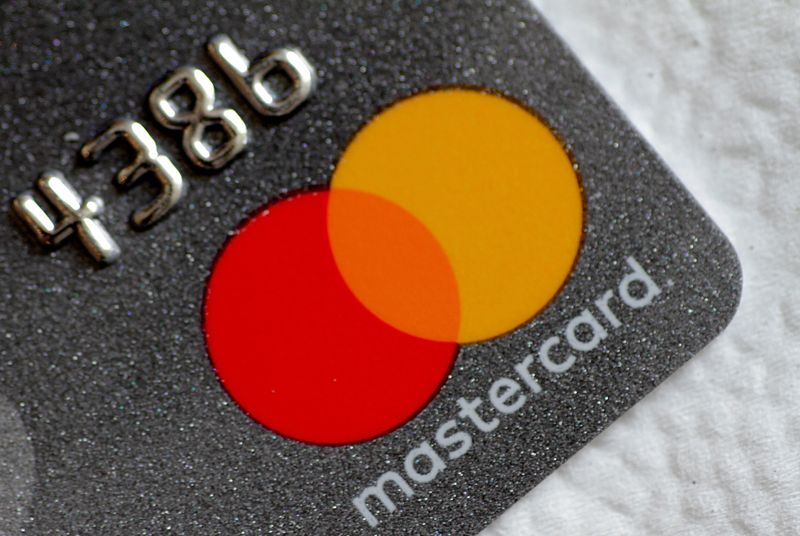By Siddarth S and Manya Saini
(Reuters) - Mastercard Inc (NYSE:MA) beat estimates for quarterly profit as consumer spending surged against a turbulent economy, but the card company's disclosure of a probe by the U.S. Justice Department unnerved investors. The regulator has demanded that Mastercard provide documents tied to its U.S. debit program and competition with other payments networks, the card company said. Visa (NYSE:V) reported a similar probe in January.
Shares of Mastercard pared gains to 1%, from as much as 2.2%, after the company forecast strong growth in the face of inflation.
Mastercard bet on resilient consumer spending through the year, as rising interest rates and stubborn inflation have had little impact on wealthier consumers who continue to spend on travel and entertainment.
"Consumer spending has remained remarkably resilient, and that despite continued economic uncertainty," said CEO Michael Miebach on an analyst call, adding that while there are signs of inflation cooling, the banking sector has come under pressure.
Pent-up demand from consumers also helped Mastercard, driving a 35% surge in cross-border volumes - a gauge of travel demand that tracks spending on cards beyond the country of its issue.
Gross dollar volumes, a metric that represents the total dollar value of all transactions processed, rose 15% on a local currency basis to $2.1 trillion.
GRAPHIC: Mastercard's GDV holds up against a tough economy https://www.reuters.com/graphics/BRV-BRV/gkplwaeorvb/chart.png
MIXED QUARTER
The results capped a mixed quarter for the biggest U.S. card firms. Earlier this week, Visa beat profit estimates, while American Express (NYSE:AXP) missed estimates last week, on bigger provisions.
Mastercard said it expects second-quarter revenue in high-end of low double-digits, roughly in line with Street expectations.

"We see guidance as leaving enough flexibility to manage uncertain macro effectively," said Wolfe Research analyst Darrin Peller.
On an adjusted basis, Mastercard earned $2.80 in the quarter, beating estimates of $2.72 per share, according to Refinitiv data.